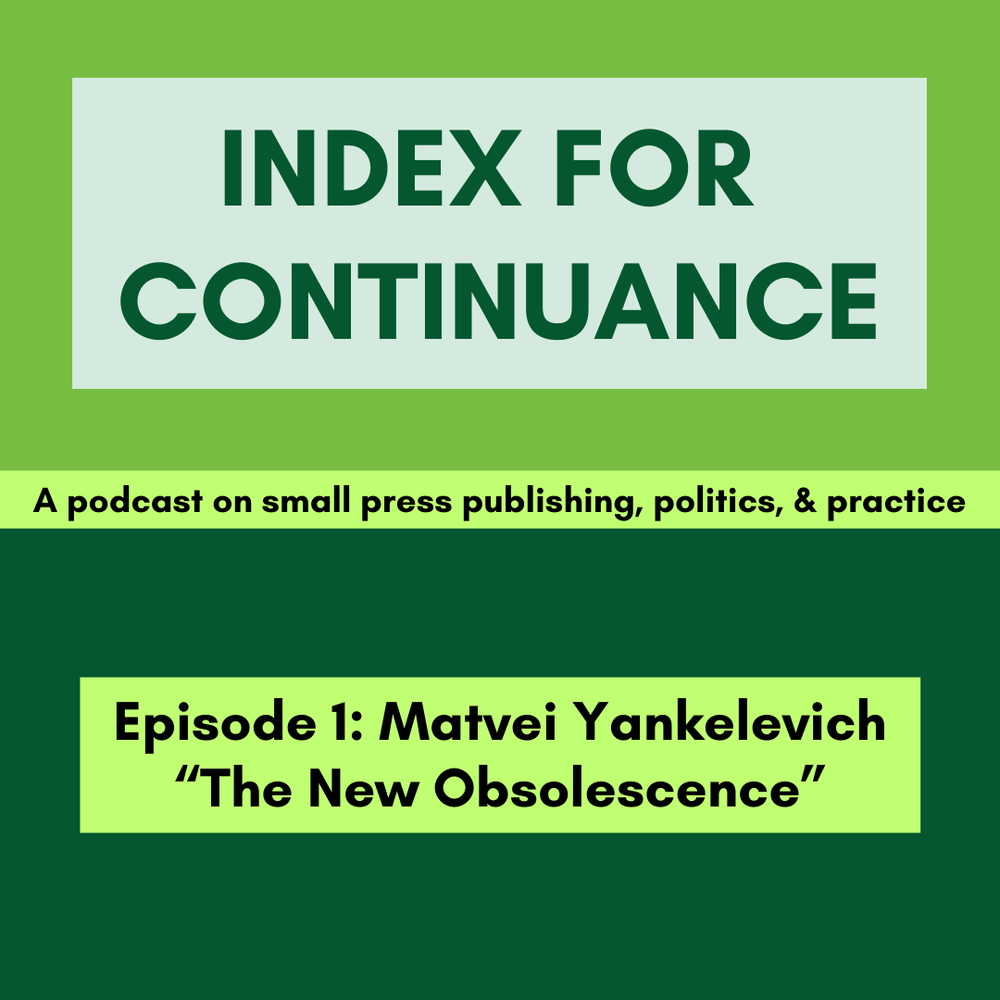
 Index for Continuance
Index for Continuance Episode 1: Matvei Yankelevich - “The New Obsolescence”
Mar 1, 2023
Matvei Yankelevich, poet, translator, critic, editor, and publisher discusses professionalization in writing, struggles and beauties of collectivization, autonomy of small press vs. compromises of capital, money in small presses, moving forward with obsolescence, and the importance of amateurism and antagonism in literary cultural production.
Chapters
Transcript
Episode notes
1 2 3 4 5 6 7 8 9 10 11
Introduction
00:00 • 2min
Introduction and Overview of the Podcast
01:43 • 4min
Reflection on an Essay About Sources of Energy and Acknowledgment
05:29 • 2min
The connection between small press publishing and the idea of an archive
07:56 • 5min
Adjuncts and AWP
12:43 • 6min
Exploring BookScan: A Quantitative View of Book Sales
18:32 • 2min
The Role of CLMP in the Publishing Community
20:19 • 23min
Challenges of Distribution in Independent Presses
43:37 • 28min
The Role of Universities in Diversifying Assigned Readings
01:12:04 • 2min
Financial Constraints and Small Presses
01:14:11 • 28min
The Importance of Amateurism and Antagonism in Literary Cultural Production
01:42:33 • 27min

